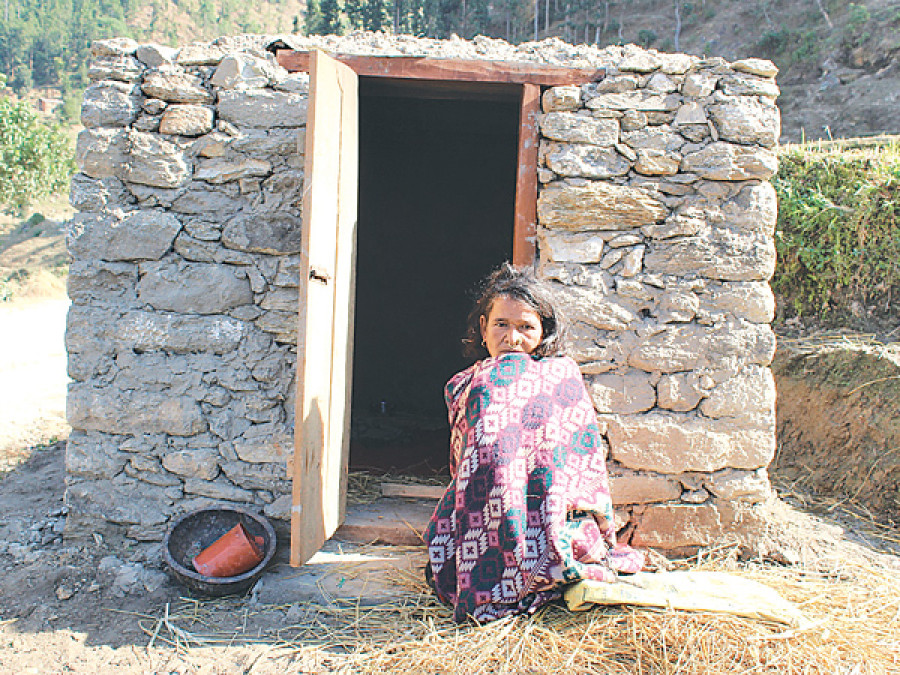National
New law criminalises Chhaupadi custom
More than a decade after the Supreme Court outlawed Chhaupadi, an ancient Hindu practice that banishes women from the home during menstruation and after childbirth, the Legislature-Parliament on Wednesday enacted a new law criminalising the centuries-old custom.
More than a decade after the Supreme Court outlawed Chhaupadi, an ancient Hindu practice that banishes women from the home during menstruation and after childbirth, the Legislature-Parliament on Wednesday enacted a new law criminalising the centuries-old custom.
As per the new law, which will come into effect soon, anyone forcing a woman to follow the custom will be liable to a three-month jail sentence or Rs 3,000 fine or both.
The bill criminalising Chhaupadi became law as the House endorsed two of the five bills formulated to replace decades-old Muluki Ain (General Code), in an attempt to modernise the country’s legal system integrating traditional and modern laws.
The House on Wednesday endorsed Penal Code and Criminal Procedure Code.
The new law says a woman during her menstruation or after childbirth should not be forced to practise Chhaupadi or treated with any kind of discrimination.
As part of the Chhaupadi custom, women during her menstruation and post-natal state are forced to live in cowsheds, away from the home, exposing them to abuse as well as life-threatening risks.
Many women die due to various reasons like snake-bite, smoke inhalation or hypothermia among others, but only a few such cases are reported.
Last month a teenage girl died after she was bitten by a snake when she was sleeping in a cattle shed where she was forced to stay to practise Chhaupadi.
Two women died last year.
Though the court banned the custom a decade ago, the ancient practice had continued, as it was yet to be criminalised.
Right activists had long been demanding a law to punish those who force women to practice Chhaupadi.
Parliament on Wednesday also passed a law criminalising match fixing in games.




 8.67°C Kathmandu
8.67°C Kathmandu














